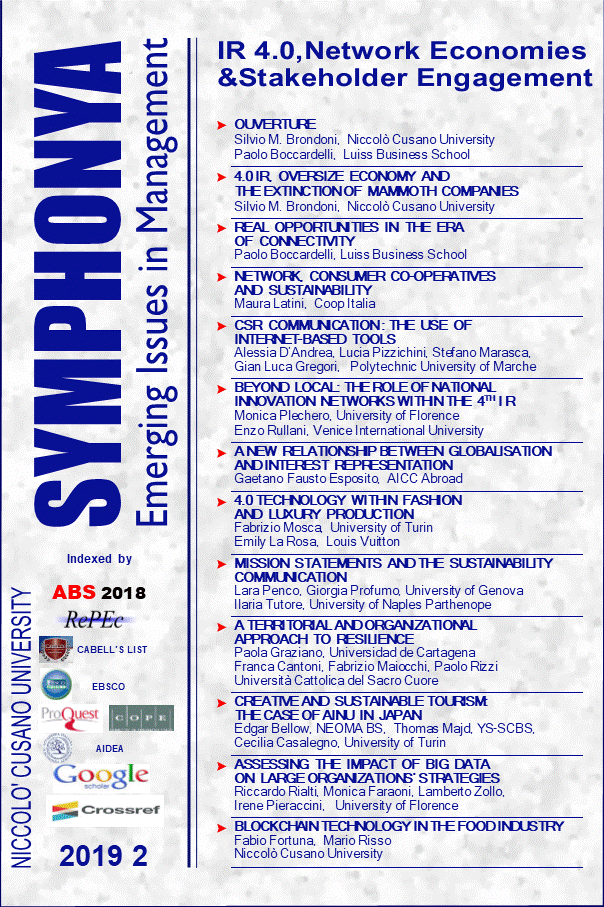Blockchain Technology in the Food Industry
DOI:
https://doi.org/10.4468/2019.2.13fortuna.rissoKeywords:
Blockchain, Supply Chain Transparency, Food Sector, Traceability, Sustainability, Global CompetitionAbstract
This paper analyses how blockchain technology works in agri-food supply chains. It also intends to identify the benefits and limitations associated with the potential widespread use of this technology to improve efficiency and sustainability performance. Despite the undeniable benefits of blockchain and the possible improvements to enhance transparency, reliability and accuracy of information, considerable challenges to its widespread adoption persist. The transformational potential of blockchain technology can be unlocked by: a) the creation of a pre-competitive space for unprecedented horizontal collaboration amongst supply chain actors to reduce cost and maximise benefits; b) the redesign of centralised governance systems of existing tracking and information-sharing platforms; c) the integration of blockchain and Internet of Things devices.
Downloads
Published
How to Cite
Issue
Section
License
Copyright (c) 2020 Symphonya. Emerging Issues in Management

This work is licensed under a Creative Commons Attribution 4.0 International License.
The authors retain all rights to the original work without any restrictions.
License for Published Contents

You are free to copy, distribute and transmit the work, and to adapt the work. You must attribute the work in the manner specified by the author or licensor (but not in any way that suggests that they endorse you or your use of the work).
License for Metadata

Symphonya published articles metadata are dedicated to the public domain by waiving all publisher's rights to the work worldwide under copyright law, including all related and neighboring rights, to the extent allowed by law.
You can copy, modify, distribute and perform the work, even for commercial purposes, all without asking permission.



